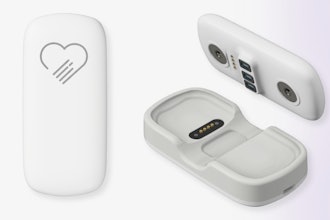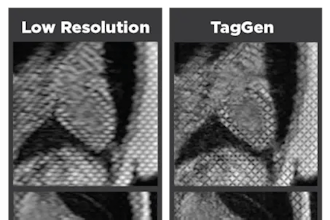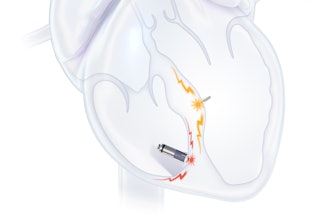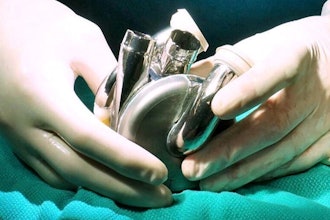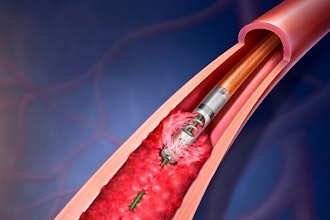
Worldwide, over 300 million electrocardiograms (EKGs) are performed each year, with one third of those taking place in the United States. Despite being so widely used, the technology of EKGs has been unchanged for decades.
Research from the University of Cincinnati College of Medicine shows that a newly-developed wireless EKG patch is as accurate, if not more accurate, than results from traditional EKG machines. The device, known as the EKG Patch Solution, was developed by the Cincinnati-based MG Medical Products.
Study findings were published recently in Clinical Research in Cardiology.
Its lead author, Richard Becker, MD, professor of medicine in the UC College of Medicine, says the patch is easier for medical staff to correctly attach to patients and less likely to display misrepresentations of important information when reading the electrical activity of the heart.
“It’s easy to use and can consistently be placed on the chest without a complicated learning curve for medical staff,” says Becker, also a cardiologist at UC Health, the university-affiliated health care system. “We also found that the likelihood of an artifact which is due to one of the leads not being placed correctly or as firmly as it should be, was 50% less likely to occur. Having a high quality EKG is essential to diagnostic accuracy and achieving good health outcomes.”
Becker says Patch EKG has an all-in-one design with built-in lead wires attached to pre-positioned electrodes for easier placement on the chest to eliminate electrode misplacement errors. It was tested in a prospective, single blind study of 200 heart patients against the standard traditional 12-lead EKG procedure.
Errors that impacted the interpretability of the EKG were detected in 6.5% of all Patch EKG procedures and 15% of all standard EKG procedures. These occurred primarily because of movement or motion in the patient, explains Becker.
Most participants either preferred the Patch EKG (47%) or did not have a preference with the standard EKG (52%).
Jeff McGrath, president of MG Medical Products, says the wireless Patch EKG could completely change how an EKG can be performed. McGrath developed the device with his son, Chris McGrath, chief operations officer at MG Medical Products.
“It’s five pounds, you don’t have to wheel the machine in, you don’t have to untangle wires, you don’t have to get people dirty,” explains Jeff McGrath. “You don’t have to have a technical skill to acquire this. People take classes for months to learn how to operate a traditional EKG. You take a class for 20 minutes with this new product to learn how to do an EKG.”
Chris McGrath says wireless EKG patch may be of particular interest to skilled nursing facilities, behavioral health facilities and correctional facilities. The ability to rapidly triage acute cardiac symptoms can help lower hospital readmission rates of individuals cared for in these facilities.
“These are places where the inability to perform an EKG is very costly to them,” Chris McGrath adds.
The study was sponsored by MG Medical Products, Cincinnati.
Other co-authors of the study at the University of Cincinnati include Brett Harnett, assistant professor; Donald Wayne, MD, professor of cardiology; Rachael Mardis, senior clinical research professional; Karthikeyan Meganathan, PhD, data analyst and adjunct assistant professor; and Dylan Steen, MD, director of clinical trials and population health research, UC Heart, Lung and Vascular Institute.













